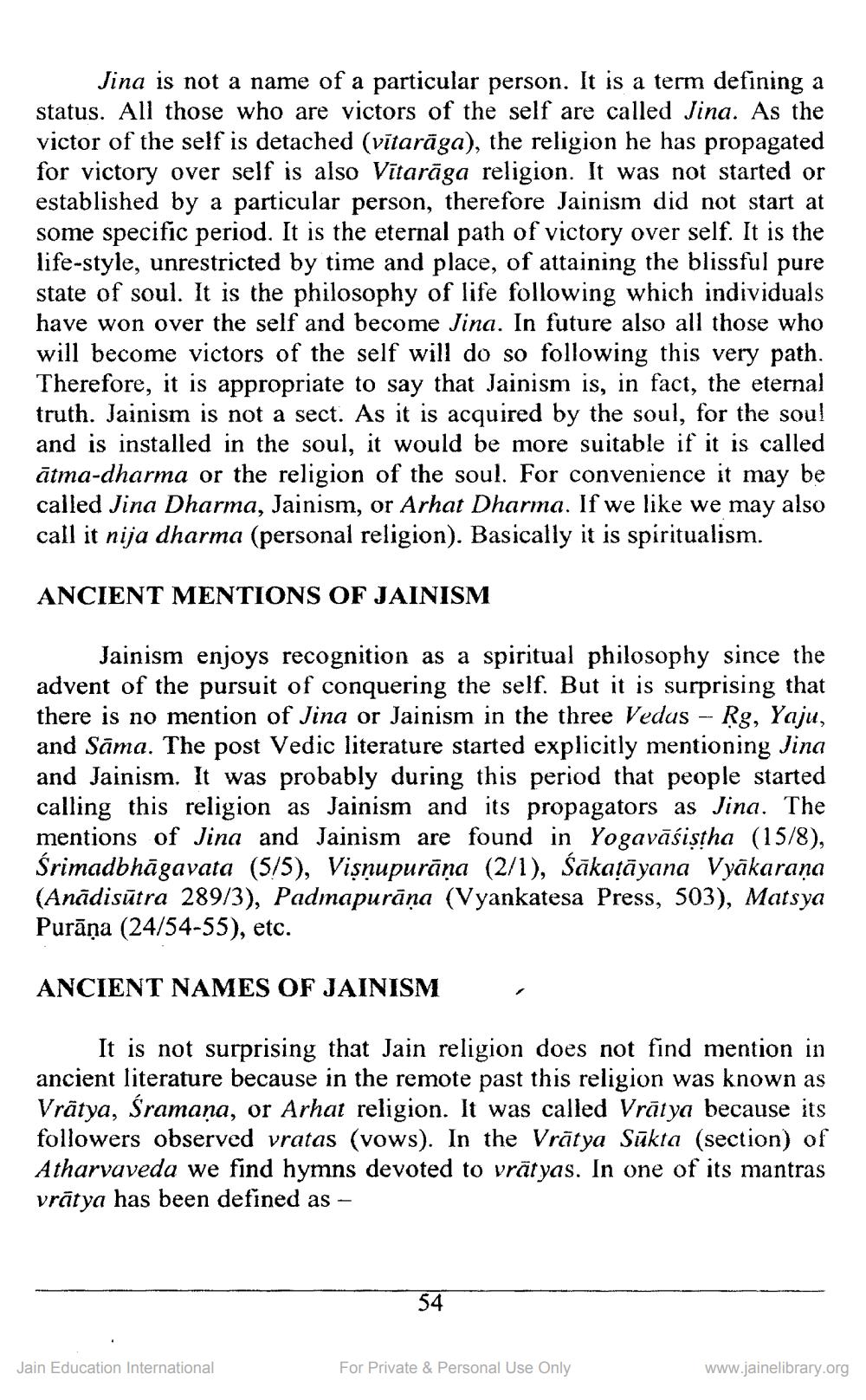________________
Jina is not a name of a particular person. It is a term defining a status. All those who are victors of the self are called Jina. As the victor of the self is detached (vītarāga), the religion he has propagated for victory over self is also Vitarāga religion. It was not started or established by a particular person, therefore Jainism did not start at some specific period. It is the eternal path of victory over self. It is the life-style, unrestricted by time and place, of attaining the blissful pure state of soul. It is the philosophy of life following which individuals have won over the self and become Jina. In future also all those who will become victors of the self will do so following this very path. Therefore, it is appropriate to say that Jainism is, in fact, the eternal truth. Jainism is not a sect. As it is acquired by the soul, for the soul and is installed in the soul, it would be more suitable if it is called ātma-dharma or the religion of the soul. For convenience it may be called Jina Dharma, Jainism, or Arhat Dharma. If we like we may also call it nija dharma (personal religion). Basically it is spiritualism.
ANCIENT MENTIONS OF JAINISM
Jainism enjoys recognition as a spiritual philosophy since the advent of the pursuit of conquering the self. But it is surprising that there is no mention of Jina or Jainism in the three Vedas -- Rg, Yaju, and Sāma. The post Vedic literature started explicitly mentioning Jina and Jainism. It was probably during this period that people started calling this religion as Jainism and its propagators as Jina. The mentions of Jina and Jainism are found in Yogavāśiştha (15/8), Srimadbhāgavata (5/5), Vişnupurāņa (2/1), Sākațāyana Vyakaraņa (Anādisātra 289/3), Padmapurāņa (Vyankatesa Press, 503), Matsya Purāņa (24/54-55), etc.
ANCIENT NAMES OF JAINISM
It is not surprising that Jain religion does not find mention in ancient literature because in the remote past this religion was known as Vrātya, Sramaņa, or Arhat religion. It was called Vrātya because its followers observed vratas (vows). In the Vrātya Sūkta (section) of Atharvaveda we find hymns devoted to vrätyas. In one of its mantras vrátya has been defined as -
Jain Education International
For Private & Personal Use Only
www.jainelibrary.org




